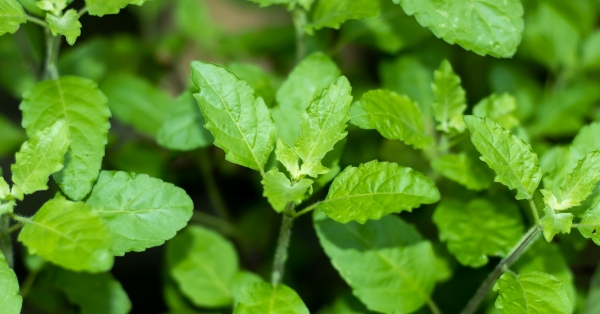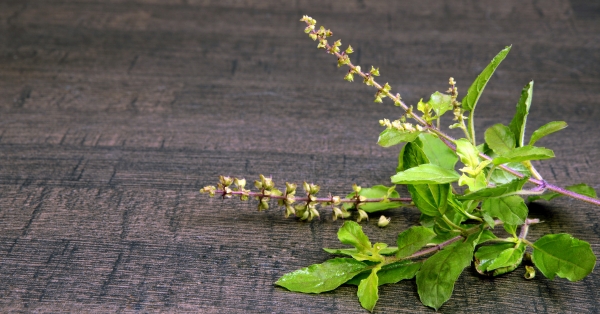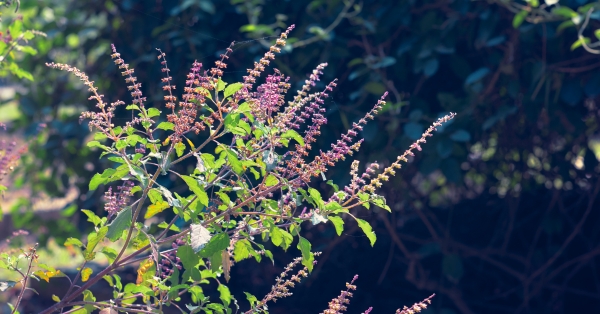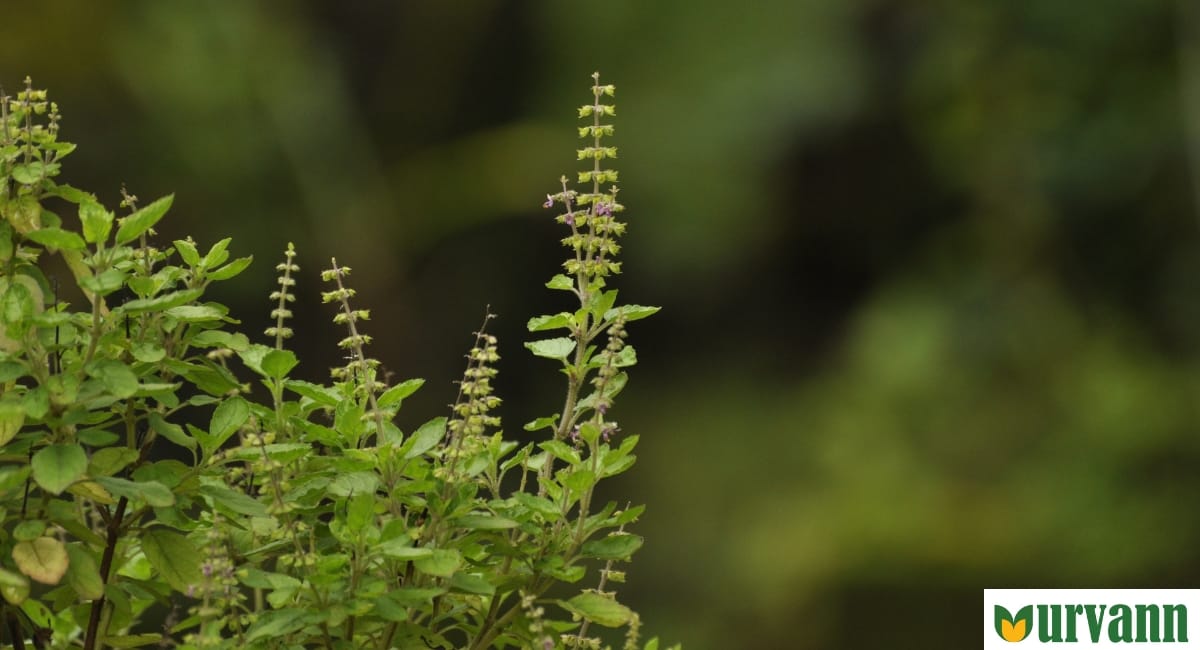In the realm of Ayurveda, the Tulsi plant, also known as Holy Basil, has held a sacred status for centuries. Revered for its medicinal properties, this aromatic herb has transcended cultural and geographical boundaries, becoming an integral part of households and holistic practices around the world. In this blog, we delve into the myriad benefits, versatile uses, and profound importance of the Tulsi plant.
.
Benefits of Tulsi
.
Boosts Immunity
Tulsi is renowned for its immunomodulatory properties. Packed with antioxidants and essential oils, it enhances the body's defense mechanisms, helping to ward off infections and diseases. Regular consumption of Tulsi tea or incorporating Tulsi leaves in daily meals can contribute to a robust immune system.
Respiratory Health
Tulsi is a potent decongestant and expectorant, making it a natural remedy for respiratory issues. It helps alleviate symptoms of asthma, bronchitis, and other respiratory conditions. Inhaling the steam from boiled Tulsi leaves can provide relief from congestion and promote clearer breathing.
Anti-inflammatory Properties
The essential oils present in Tulsi possess anti-inflammatory effects, making them beneficial for conditions like arthritis and other inflammatory disorders. Regular consumption may help reduce inflammation and alleviate associated symptoms.
Antibacterial and Antiviral Action
Tulsi's antimicrobial properties make it effective against a wide range of bacteria, viruses, and fungi. It acts as a natural antibiotic, aiding in the prevention and treatment of infections. Chewing Tulsi leaves or using Tulsi oil can be beneficial in maintaining oral health..
Uses of Tulsi

Culinary Delight
Tulsi leaves add a distinct flavour to culinary creations. They are used in various dishes, including curries, salads, and drinks. The aromatic essence of Tulsi enhances the taste of food while imparting its health benefits.
Tulsi Tea
Tulsi tea is a popular and easy way to incorporate the benefits of this plant into your daily routine. The tea is not only refreshing but also provides a plethora of health benefits, from stress relief to immune system support. You can prepare Tulsi tea by steeping fresh or dried leaves in hot water.
Medicinal Infusions
Tulsi leaves can be infused with honey, vinegar, or oil to create potent medicinal concoctions. Tulsi-infused honey is renowned for its soothing effect on sore throats, while Tulsi-infused oil can be used topically to alleviate skin conditions or in massage for relaxation.
Skincare
Tulsi's antimicrobial and anti-inflammatory properties extend to skin care. Tulsi paste or Tulsi-infused oils can be applied topically to treat acne, reduce inflammation, and promote clear and radiant skin.
Religious and Spiritual Practices
Tulsi holds immense significance in Hinduism, where it is considered sacred and often planted in household courtyards. It is worshipped as a deity and is an integral part of various religious rituals. The plant is believed to purify the surroundings and ward off negative energies..
Importance of the Tulsi Plant
.
Cultural and Religious Significance
Tulsi is not merely a plant; it is a symbol of purity and devotion in Hindu culture. The plant is worshipped as an incarnation of the goddess Lakshmi and is an essential part of religious ceremonies. Its presence in homes is believed to bring prosperity and positive energy.
Biodiversity and Environmental Impact
Tulsi contributes to biodiversity by providing a habitat for various insects and birds. Its aromatic leaves act as a natural insect repellent, helping protect surrounding plants. Cultivating Tulsi also promotes sustainable agricultural practices.
Traditional Medicine and Holistic Healing
Ayurveda, the ancient Indian system of medicine, recognizes Tulsi as a valuable herb with diverse healing properties. Its inclusion in traditional medicine highlights its importance in holistic approaches to health and well-being.
Community Health Initiatives
In several communities, Tulsi is cultivated for community health initiatives. The availability of Tulsi promotes easy access to its health benefits, and community gardens or initiatives encourage people to incorporate Tulsi into their daily lives..
Conclusion
The Tulsi plant, with its rich history, holistic significance, and versatile applications, stands as a testament to the profound connection between nature and human well-being. Beyond its aromatic allure and culinary uses, Tulsi emerges as a symbol of cultural heritage, a healer in traditional medicine, and a guardian of environmental balance. As we continue to explore the vast realm of natural remedies, the Tulsi plant remains a timeless and indispensable ally on the journey to holistic health.


0 Comment